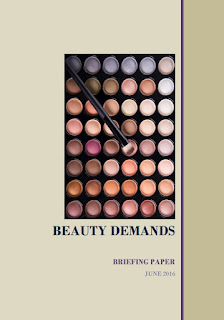Launch of the Beauty Demands Briefing Paper

The beauty demands briefing paper launches TODAY 9 th of June 2016. For a hard-copy please email Ruth Wareham or download a copy here . The briefing paper will be launched at the Nuffield Council on Bioethics this afternoon . The briefing document is one of the final outputs of the beauty demands network. The Network on “The Changing Requirements of Beauty” is funded by the Arts and Humanities Research Council under a policy highlight notice. The network is a partnership between the academic community and the Nuffield Council on Bioethics. Academics from many disciplines, including anthropology, cultural theory, history, law, medicine, philosophy, sociology and psychology, have contributed to the network. The network has also included many voices from beyond academia and we have had sessions and contributions from non-academics, including, artists, curators, doctors, journalists, nurses, psychiatrists and surgeons. The network was built around four workshops which have tak
